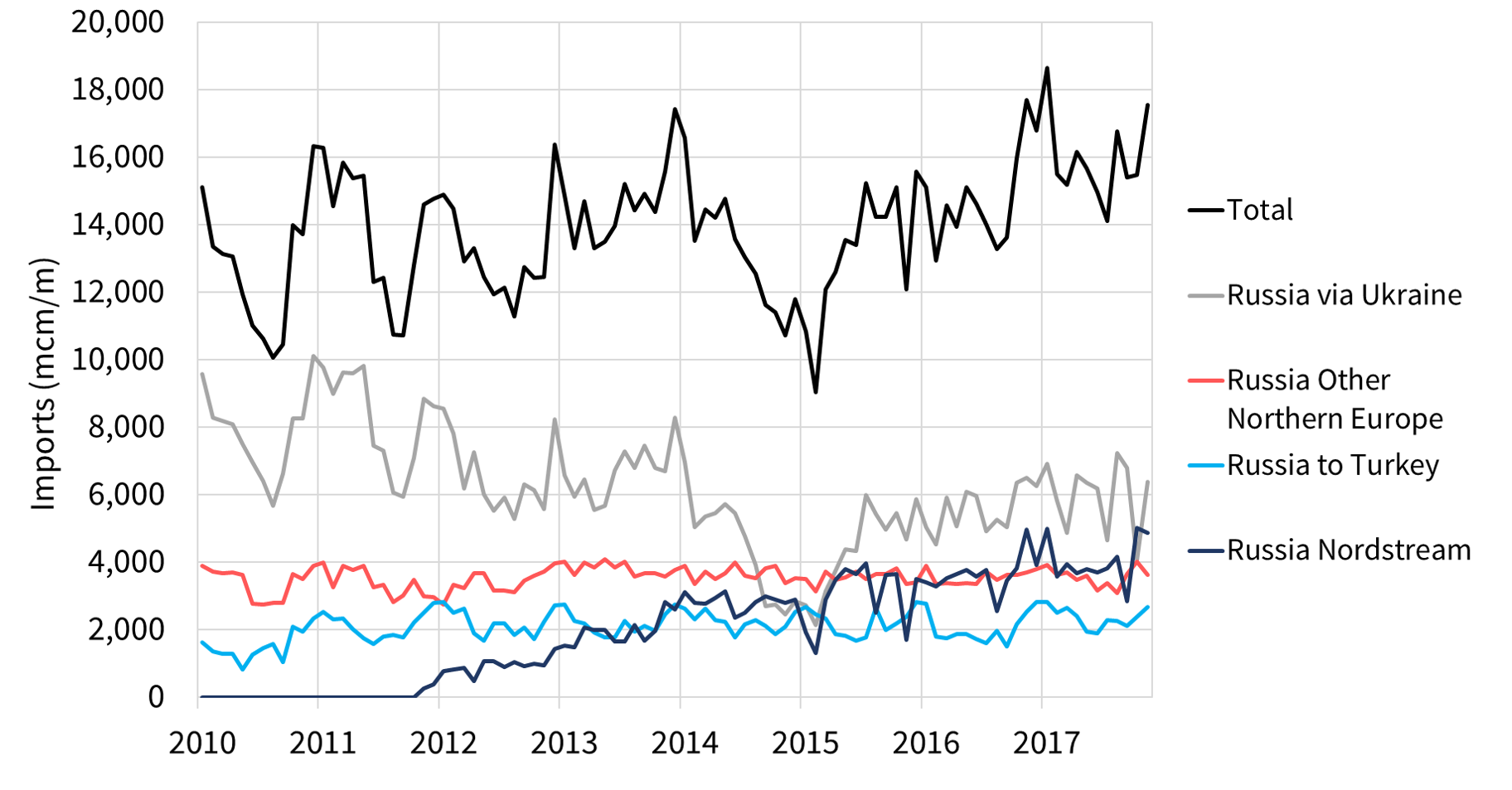Addressing Taiwan's Energy Needs: The Importance Of LNG Imports

Table of Contents
The Current State of Taiwan's Energy Mix
Dependence on Imported Energy
Taiwan's energy security is precarious due to its overwhelming dependence on imported energy. This reliance exposes the island nation to significant risks, including price fluctuations in the global energy market and potential disruptions stemming from geopolitical instability. A diversified energy mix is urgently needed to mitigate these vulnerabilities and bolster energy independence.
- Percentage of energy imports vs. domestic production: A significant majority of Taiwan's energy needs are met through imports, leaving it vulnerable to external pressures.
- Current energy sources (coal, nuclear, renewables): Taiwan currently utilizes a mix of coal, nuclear, and renewable energy sources, but the proportion of imported fossil fuels remains substantial.
- Vulnerabilities to supply disruptions: Geopolitical events or disruptions in global supply chains can severely impact Taiwan's energy access and economic stability. This highlights the critical need for energy diversification strategies. The keywords "energy security," "energy diversification," "import dependence," and "Taiwan energy policy" are central to understanding this precarious situation.
The Role of LNG in Diversifying Taiwan's Energy Portfolio
LNG as a Cleaner Alternative
LNG imports offer a crucial pathway towards a cleaner and more secure energy future for Taiwan. Compared to coal, liquefied natural gas (LNG) produces significantly fewer greenhouse gas emissions, aligning with global efforts to mitigate climate change and transition to a lower-carbon energy system.
- Comparison of LNG emissions with other fossil fuels: LNG boasts lower carbon emissions per unit of energy compared to coal, representing a substantial improvement in environmental performance.
- Potential for integrating renewable energy sources with LNG infrastructure: Existing LNG infrastructure can be adapted to integrate renewable energy sources, creating a more flexible and resilient energy system.
- Discussion of carbon capture and storage (CCS) technology's potential role: The deployment of carbon capture and storage technologies could further reduce the carbon footprint of LNG utilization, paving the way for a more sustainable energy future. Keywords such as "natural gas imports," "liquefied natural gas," "clean energy transition," "renewable energy integration," and "energy diversification strategy" capture the essence of this transition.
Addressing Infrastructure and Logistics for LNG Imports
Investment in LNG Terminals and Infrastructure
Significant investments are required to bolster Taiwan's LNG import capabilities. This includes expanding LNG terminal capacity, constructing new pipelines, and enhancing storage facilities to accommodate the increased influx of LNG.
- Current LNG terminal capacity and future expansion plans: Assessing existing infrastructure and planning for future expansion is vital to meet growing energy demands.
- Challenges and opportunities in developing LNG infrastructure: This involves addressing logistical hurdles, securing necessary funding, and ensuring efficient and sustainable infrastructure development.
- Economic benefits of infrastructure development (job creation, economic growth): Developing LNG infrastructure creates significant economic opportunities, stimulating job creation and boosting economic growth. Keywords such as "LNG infrastructure development," "import terminal capacity," "LNG storage," "pipeline infrastructure," and "energy infrastructure investment" are crucial in this context.
Geopolitical Considerations and Supply Chain Resilience
Diversifying LNG Suppliers
To minimize the risks associated with relying on a single supplier, Taiwan must diversify its sources of LNG imports. This strategy strengthens its energy security and reduces vulnerability to geopolitical instability.
- Current LNG supplier countries and potential new partners: Identifying and establishing relationships with multiple LNG suppliers is essential for a resilient energy supply chain.
- Strategies for ensuring stable and reliable LNG supplies: This involves establishing long-term contracts, exploring alternative supply routes, and developing robust risk management strategies.
- Discussion of the geopolitical implications of LNG imports: Careful consideration of geopolitical factors is necessary to ensure stable and reliable LNG imports without compromising national security. Keywords like "LNG supply chain," "energy supply security," "geopolitical risks," "supplier diversification," and "energy independence" underline the importance of a multifaceted approach.
Conclusion
In conclusion, LNG imports represent a crucial component of Taiwan's energy strategy. By diversifying its energy portfolio, embracing cleaner energy sources like LNG, and developing robust infrastructure, Taiwan can enhance its energy security, reduce its carbon footprint, and support sustainable economic growth. The benefits of diversifying LNG suppliers and investing in the necessary infrastructure are clear. We encourage further research and engagement with relevant stakeholders to promote the strategic importance of increased LNG imports and the development of a comprehensive and resilient energy strategy for Taiwan.

Featured Posts
-
 Understanding The D Wave Quantum Qbts Stock Price Volatility This Weeks Events
May 20, 2025
Understanding The D Wave Quantum Qbts Stock Price Volatility This Weeks Events
May 20, 2025 -
 Chat Gpts Enhanced Coding Capabilities The Ai Coding Agent Explained
May 20, 2025
Chat Gpts Enhanced Coding Capabilities The Ai Coding Agent Explained
May 20, 2025 -
 Backstage News The Current Situation With Aj Styles Wwe Contract
May 20, 2025
Backstage News The Current Situation With Aj Styles Wwe Contract
May 20, 2025 -
 Hmrc Letter Thousands Of Uk Households Earning Over 23 000 Affected
May 20, 2025
Hmrc Letter Thousands Of Uk Households Earning Over 23 000 Affected
May 20, 2025 -
 Sandylands U Where To Watch And When
May 20, 2025
Sandylands U Where To Watch And When
May 20, 2025
